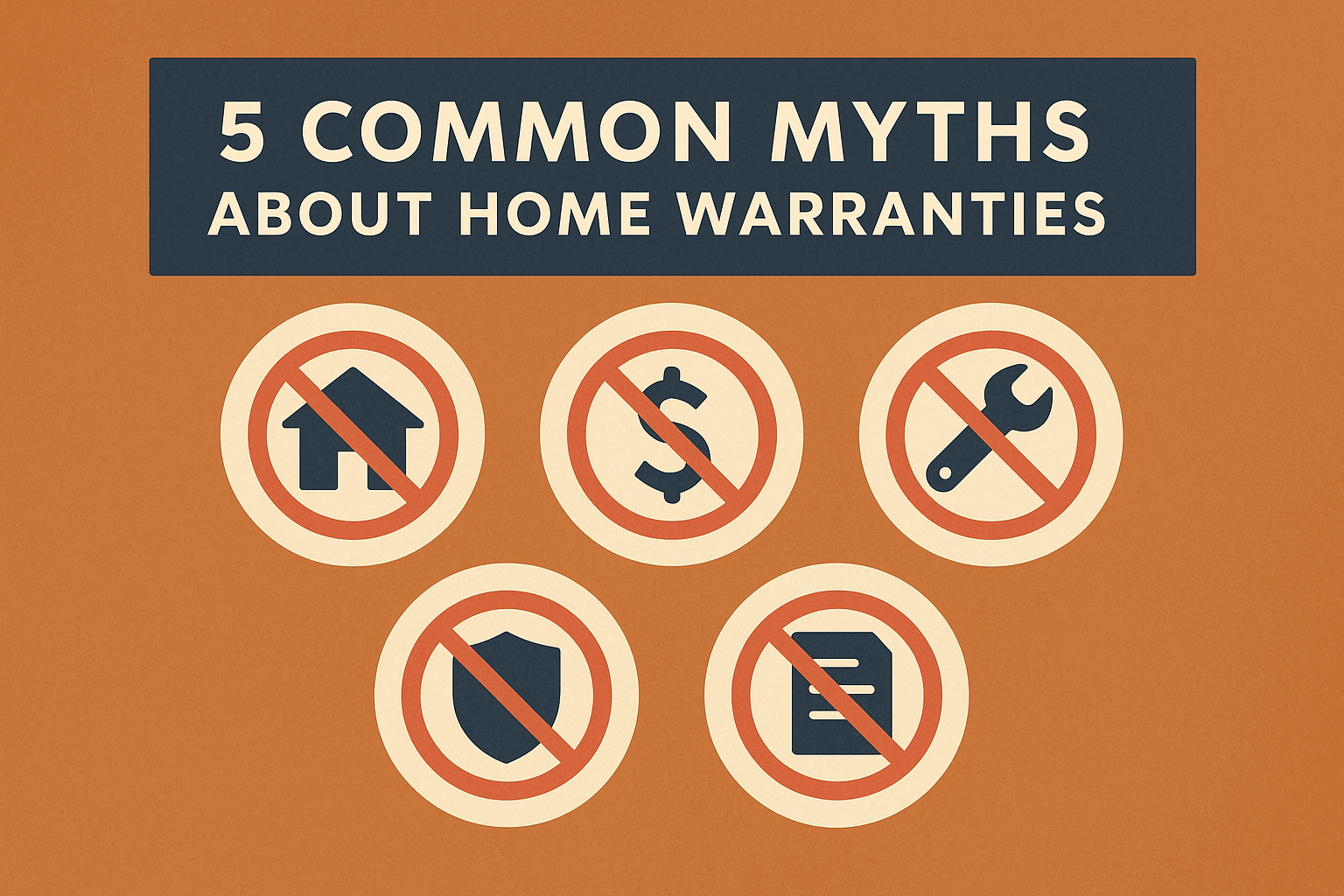When it comes to protecting your home, few tools offer as much convenience and peace of mind as a home warranty. But despite their growing popularity, home warranties remain one of the most misunderstood services among homeowners. Misinformation, outdated assumptions, and sales hype have created a number of persistent myths that keep many from making a well-informed decision.
If you’re considering a home warranty—or simply trying to make sense of what you already have—let’s set the record straight. Here are five of the most common myths about home warranties and the truth every homeowner should know.
Myth 1: A Home Warranty Covers Everything in the House
The Truth:
A home warranty does not cover everything. Unlike homeowner’s insurance, which protects against damage from external events like fire or weather, a home warranty covers the repair or replacement of major systems and appliances due to normal wear and tear. This typically includes HVAC systems, electrical, plumbing, water heaters, kitchen appliances, washers and dryers, and sometimes pool equipment or garage door openers—depending on the plan.
However, cosmetic damage, structural components (like roofing or windows), and non-mechanical items usually fall outside the scope of coverage. Always read the contract details and look for coverage limits, exclusions, and conditions before assuming you’re covered.
Myth 2: Home Warranties Aren’t Worth the Cost
The Truth:
It depends on your perspective—and your home. For a relatively low annual fee (often between $400 and $700), a home warranty can save you thousands on unexpected repairs. If your furnace dies in January or your refrigerator breaks down suddenly, a warranty can cover the repair or even full replacement, minus a modest service fee (typically $75–$125).
Home warranties are especially valuable for older homes, or when you’re unfamiliar with the condition of appliances and systems—such as after purchasing a house. They’re also useful for homeowners who want predictable budgeting without emergency repair costs.
Myth 3: You Can Choose Any Contractor You Want
The Truth:
Most home warranty companies have a network of pre-approved service providers, and you must use one of their assigned contractors to process a claim. While this streamlines the repair process and often results in faster service, it can be frustrating for homeowners used to working with specific local professionals.
That said, reputable warranty companies vet their contractors for quality and reliability. If you experience a problem with a technician, the provider usually offers a reservice guarantee—meaning they’ll send a different contractor at no extra charge.
Myth 4: You Don’t Need a Warranty If You Have Home Insurance
The Truth:
Homeowners insurance and home warranties serve completely different purposes. Insurance protects your home and belongings from external events like theft, fire, storms, and vandalism. A home warranty, on the other hand, covers the repair or replacement of systems and appliances that break down over time due to normal use.
Think of it this way: insurance handles the big, unexpected disasters, while a home warranty takes care of the everyday breakdowns that come with living in a home. Ideally, both should work hand-in-hand to give you total peace of mind.
Myth 5: Warranty Companies Always Deny Claims
The Truth:
While denied claims are a source of frustration—and not entirely uncommon—they’re often the result of misunderstandings, not malice. Most denials occur due to:
-
Pre-existing conditions
-
Lack of proper maintenance
-
Items not included in your specific plan
-
Claims made during a waiting period
To avoid denials, make sure to:
-
Read your contract carefully
-
Maintain your covered items according to manufacturer guidelines
-
Ask your provider for clarity on covered components
-
Keep service records when applicable
Many reputable home warranty companies offer 24/7 customer support, online portals, and transparent coverage terms. The more informed you are, the better your experience will be.
Final Takeaway
A home warranty isn’t a magic fix-all—but it is a valuable safety net for many homeowners. By understanding what it does (and doesn’t) cover, reading your agreement thoroughly, and managing expectations, you can get the most out of your coverage and avoid costly surprises. Don’t let myths prevent you from making a smart, protective investment in your home.
